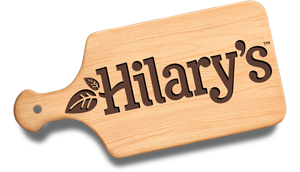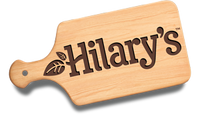Bringing Free-From to Market: Business Leaders Weigh In

Leaders from some of the free-from movement’s top brands discuss providing safe food to a growing market.
Hitesh Hajarnavis, VG Growth Partners
For the 32 million Americans who suffer from food allergies, companies that produce and distribute allergen-free foods can be literal life-savers. In decades past, very few healthy, tasty options existed for this growing segment of the population. Today, many business leaders are realizing the moral imperative—and massive business opportunity—of creating food products that are safe and appealing for all consumers.
Among the businesses that are stepping up to the plate are:
- Free2b: a free-from snack food company that produces everything from chocolate sunflower butter cups to bagel chips
- Hilary’s Eat Well: a plant-based, free-from food producer specializing in a variety of veggie burgers
- SunButter: a sunflower-butter producer, positioned as an alternative to nut butters
- Cybele’s Free to Eat: a healthy, free-from company that produces cookies and pastas
We talked to leaders from each of these businesses about why they’re invested in the free-from movement, how the movement has changed over time, and what the future looks like for free-from brands.
Free-From Roots
Why focus on providing healthy, delicious products to food-allergy sufferers? For some business leaders, the decision to build a free-from brand started with a personal connection to allergy sufferers—something that deeply connects these leaders to their consumers.Cybele Pascal, Cybele’s Free to Eat: In 2001, I was a professional writer living in New York, and my first son was born. By the time he was four months old, he was diagnosed with a life-threatening food allergy. I was put on a maternal avoidance diet because I was breastfeeding him, and he couldn't be exposed to any of the top eight food allergens.
My diet completely changed. I had to eat allergen-free, and once my son started eating solid food, he also had to eat allergen-free for the first few years of his life. When my second son was born, he had an egg allergy. So I ended up having a food allergy household.
I started writing down recipes, because at that time, there were barely any products in the marketplace that were allergen-free. Eventually, I wrote a cookbook because there also weren't any cookbooks out there for people who had multiple food allergies. Mine was the first exclusively allergen-free cookbook to be sold. It made it into the hands of Martha Stewart. She brought me on her show, and all of a sudden my book was reaching millions of people. It turned out there was this huge audience of people who needed allergen-free recipes and food. The food-allergy epidemic was growing and growing, and no one was addressing it. I ended up writing multiple best-selling cookbooks and developing a broad network of followers who needed my recipes.
By around 2012, people were asking for finished products on the shelves. So I launched a line of allergen-free soft baked cookies in 2013 because I felt like there still wasn't a delicious treat that would be great for everybody in the house. My mission was to create allergen-free food that is delicious and healthy for everybody.
Other business leaders were well-positioned to establish themselves in a market that was clearly growing.
Justin LaGosh, SunButter: SunButter was born out of a large sunflower processing company that was naturally free from the top eight food allergens. In the late 90’s, the export market for confectionary sunflower seeds was shrinking. SunButter was actually a bi-product—a way to use the sunflower seeds that weren't selling overseas, remove the shells, and get kernels that could be roasted and ground into a replacement for peanut butter.
My former boss, Dan Hofland, had a niece with a severe peanut allergy, so he was particularly interested in introducing this product. He worked on it with different food science groups between 2000 and 2002. In 2003, we had our first iteration of sunflower butter. And it's really grown from there.
We found out that families looking for solutions in this arena have a much greater passion for the brands they trust than those that are simply using a product for its taste or packaging. Our followers are brand advocates, and they gave us an opportunity to exist today.
Adam Lennon, Free2b Foods: Traditionally, chocolate had been found in facilities that operated with nuts, milk products and soy. There hadn't been many truly allergen-friendly options for consumers in the chocolate category. We saw the allergy-free market growing, and not just for people with allergies. Students wanted to bring snacks to school, and they needed allergy-friendly options as well.
We created a top-12-allergen-free chocolate and a chocolate and sun butter cup to give people with allergies—mainly peanut allergies—an opportunity to try an iconic peanut-butter-cup-style product. We really want to be a fun snack for the entire family to enjoy.
Free-From On the Rise
Leaders in the free-from space report seeing changes in their target market over time and in the products that are available to that market.Justin LaGosh, SunButter: When I started with the company in 2008, the idea that there was an epidemic of peanut allergies was still widely unknown. So I would say awareness has grown tremendously.
I think our customer base is continuing to grow. Our brand owns about 80 percent of the nut-butter-alternative market. Our products are also keto, paleo and vegan, so we naturally appeal to people following those diets. That market is growing at a pretty remarkable pace, too, as people are wanting to eat healthier and understand the ingredients in their foods.
Cybele Pascal, Cybele’s Free to Eat: There's definitely a shift. Initially this market was composed of people who had to eat free-from foods, and now it's also people who want to. I believe that the consumer demographic has expanded. A lot of people just want to eat really clean foods and to know exactly what's in them.
The number of kids with food allergies continues to grow at an alarming rate. So that growth, paired with the fact that a lot of people are avoiding allergens even if they don’t have food allergies, has caused the free-from category to become more mainstream.
Becky Harpstrite, Hilary’s Eat Well: We’ve definitely seen a lot more innovation in free-from products over the past five years. Customer demand and excitement for these kinds of products is clearly there, but we need to continue to work with retailers and restaurants to get more of those options on shelves and on menus so customers have access to them.
Some leaders are already seeing the free-from retailer landscape transform.
Adam Lennon, Free2b Foods: We have seen a change in the stores that offer our products. In the beginning, we were mostly able to sell within the natural and specialty markets. Now we're seeing more traditional retailers introducing allergy-friendly sets. It started with gluten-free sets, and now there are allergy-friendly sets and healthy-living sets.
I think retailers are recognizing that consumers' tastes are changing. More consumers are paying attention to how their bodies react to different foods. Whereas there weren’t many options in the past, now there are options, and they taste good. Conventional retailers are realizing that allocating space for some of these specialty items is a smart move. It brings more consumers in, and they’re not losing those consumers to specialty stores.
Needs for Advancement
While free-from foods are certainly more accessible today than in years past, industry leaders still see room for improvement.Becky Harpstrite, Hilary’s Eat Well: Obviously, we would like to see the number of sufferers go down, and there are some amazing organizations like EAT (End Allergies Together) working on solutions. But, until we can get there, we would like to see a world where people who are suffering from food allergies have options wherever they go. That means more safe options at restaurants, airports, gas stations, and for quick meals at home.
We want it to be easy for everyone to move through the world and feed themselves well, safely, and easily. Culturally, it would be amazing if we could all generate more empathy and compassion for people dealing with these issues. If you manage a restaurant, train your staff about the seriousness of food allergies and work toward being more accommodating if you can. If your child doesn’t have food allergies, talk to them about how they can be an advocate for their friend who does. Educate yourself and help ease the burdens for others who are living with these difficulties.
Cybele Pascal, Cybele’s Free to Eat: Airlines and airports definitely need to step it up. Colleges are beginning to show signs of progress, but they need to step it up further.
Adam Lennon, Free2b Foods: I think progress will start to jump into travel. Airlines are serving fewer peanuts. Airports haven't really gotten there yet, but I think they will. Movie theaters have some allergy-friendly options now.
Sporting events are difficult. Especially baseball, where peanuts are considered part of the game and they're flying everywhere as people are throwing them on the floor. That, I think, will be the last place to change.
There are so many items that are inherently free-from that many companies are starting to call out where accessibility is lacking. It's all about trust, and I think that's growing.
Effective Messaging
As the free-from landscape continues to progress, messaging that appeals to all types of eaters has become especially important.Adam Lennon, Free2b Foods: We've always said, "Hey, we're the allergy free company." It used to be that allergy-free consumers ate one thing, and everybody else ate something else. Now that we're becoming more conventional, we're starting to change the messaging a little bit. “We are a great tasting chocolate product that is allergy-free.”
Our marketing is still really geared toward the allergy-free market. But we’re also telling consumers that if they like chocolate, they’ll like our products.
I also find that “free-from” instead of “allergen-free” creates a bit of a halo effect because we're not just free from allergies, we're free from unnatural ingredients and free from GMOs. “Free-from” means free from the things that you don't need or want or even know about. I think that's helped us.
Becky Harpstrite, Hilary’s Eat Well: It’s important to remember that people dealing with food allergies have to do a lot of work to make sure they or their kids avoid triggering ingredients. Customers managing allergies have to be diligent, and often call manufacturers to ensure a food product isn’t at risk for cross contamination if it’s made on shared equipment. If an ingredient panel doesn’t have the allergen listed but it’s made on equipment that produces other products with allergen, then it may not be safe.
We make our products in a dedicated free from facility, and it’s important to our customers that we state that clearly on our packages under the ingredient panel. We also communicate with them on the front of the package that we’re free from the top 12 common food allergens, so at a glance, they can see our product is safe. Hilary’s works hard to be transparent and up front with our customers so they can eat our products with confidence and joy.
Advocacy, also, is a baked-in part of some free-from businesses’ strategies.
Justin LaGosh, SunButter: Advocacy and research support are a large part of what we do. Since our inception, we’ve given millions of dollars to organization's that do food-allergy research, or work to make food-allergy-friendly food available to those in need or those that don't have access to it. The Food Equality Initiative is a partner of ours in making free-from products available for free or at reduced rates. When natural disasters happen, we work hard to make our products available to those who are impacted.
A Bright Future
Food-allergy consumers have begun demanding access to safe foods in industries across the board. As the number of food-allergy sufferers grows, many industry leaders are addressing consumer concerns, signaling an important shift in allergy-free accessibility.
Adam Lennon, Free2b Foods: Growing up I was gluten-free, and the only option was this disgusting spelt bread that our local health food store sold. I ate it because I had to, but I was miserable. Now there are good tasting options. Consumers are eating them because they like them, and sometimes they don't even realize that they’re free-from.
I think all companies are doing a better job marketing that certain products are free-from. That's also a result of more legislation of the top eight allergens. With that labeling has come a rising tide of better-tasting products. Companies know food-allergy consumers are out there and that shoppers will go somewhere else if companies don't have the product they want. The days of "You get what you get, and you don't get upset" are over.
____________
Hitesh Hajarnavis is a co-founder and managing partner at VG Growth Partners. VG is an investment and advisory firm led by highly experienced operators and investors focused on building category leading consumer companies. VG brings significant industry expertise, proven track record as brand-builders, and hands-on operational experience of its co-founders to help promising brands grow sustainably.

